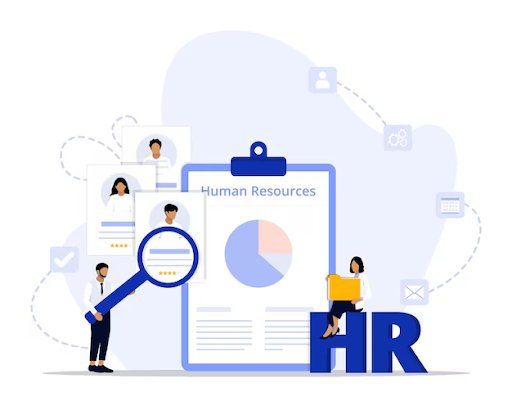How Can HR Be a Key Success Player in a Business?

Has it ever happened to you or anyone you know how HR can facilitate the success of a business? Many people regard HR as purely hiring and terminating, but those are just components of the profession. This role has recently evolved to support businesses in realizing their growth ambitions. Whether it is employee satisfaction, performance management, or using data to make better decisions, HR can make a huge difference. If you want to improve your HR skills, an HR Course can teach you how HR can drive business success.
In cities like Noida, where technology and new businesses are growing fast, HR has to be more than just a support function. HR professionals must understand how to find the best talent, keep employees happy, and help businesses grow. As the business world changes, HR needs to change too. Let's explore how HR can become a key player in business success.
From Administration to Strategy
Earlier, HR departments were purely the administrative arm of an organization; they did merely payroll and employee benefits work, solving different workplace problems. Nowadays, HR departments are a huge deal because they play a pretty significant role in shaping an organization's strategy. The people who sit to do all the paperwork, in fact, make decisions for the entire organization.
HR professionals are also now providing data and insights to grow businesses. For instance, instead of employing people, data can determine which candidate would do well in the long term. Data can help companies make better decisions, save money, and increase productivity.
HR professionals must be strategic in a city like Noida, where companies are proliferating. An HR Analytics Course can help HR teams understand how to use data to improve hiring, performance, and retention strategies. With the right tools, HR can directly impact business success.
The Power of HR Analytics
HR Analytics helps businesses make better decisions by using data. It looks at recruitment, performance, employee engagement, and retention trends. Instead of guessing what might work, HR can use facts and data to guide their choices.
For instance, HR can determine which employees are most likely to leave the company and understand why. This helps businesses take appropriate measures before losing their best employees. HR can also measure employee performance and formulate training programs that can enhance employees' skills.
A simple example of how HR analytics can be applied is shown below:
|
HR Analytics Area |
Benefit to Business |
HR Role |
|
Predicting Employee Turnover |
Reduce turnover rates and save on recruitment costs |
Analyze past turnover trends to spot at-risk employees |
|
Hiring the Right Talent |
Hire candidates who are most likely to succeed |
Use data to match job candidates with company needs |
|
Employee Engagement |
Improve employee satisfaction and reduce absenteeism |
Gather feedback to improve work conditions |
|
Training and Development |
Increase employee productivity and growth |
Use data to identify skill gaps and develop training programs |
Building the Right Skills: The Need for Continuous Learning
As HR becomes more crucial for business success, HR professionals must learn and update their skills. In short, keeping pace with new trends, technologies, and tools helps improve HR practices. In this fast-moving city, Noida, they have to change quickly with industry changes.
Taking an HR Generalist Course in Noida can help professionals understand HR, from recruitment to employee relations. This course covers many different HR areas, so HR professionals are well-equipped to handle all aspects of the job. In a growing city like Noida, having a broad skill set is essential because businesses are becoming more complex and diverse.
An HR Generalist Course in Noida also helps students learn to work with all employees and deal with local issues. In Noida, businesses are rapidly growing, and most employees are from various backgrounds; thus, HR has to tackle diverse teams by managing an inclusive workplace culture. The courses equip the HR professional with such challenges.
Creating a Company Culture and Dealing with Employee Engagement
Company culture is essential for the success of a business. A positive and inclusive culture makes employees happier, improves performance, and reduces turnover. HR can shape and maintain this culture. By creating a positive work environment, HR helps employees feel more engaged and motivated.
HR needs to create a welcoming and inclusive workplace in diverse cities like Noida, where workers have different job expectations. HR can develop programs that promote teamwork, communication, and personal growth. Regular feedback and recognition are also essential for keeping employees engaged.
Conclusion
HR is no longer just about paperwork and managing people. It has become an essential part of a company's strategy for success. By using data through HR Analytics, constantly upgrading skills with courses like the HR Generalist Course in Noida, and shaping a positive company culture, HR can significantly impact business growth. In cities like Noida, where the business environment is fast-paced and competitive, HR professionals who understand these trends are key to helping businesses succeed.
What's Your Reaction?























